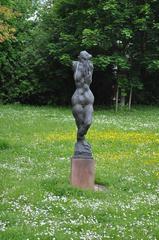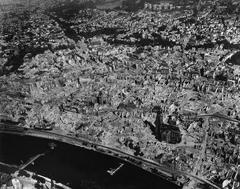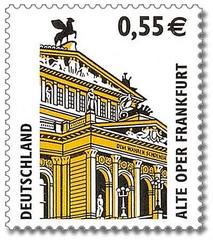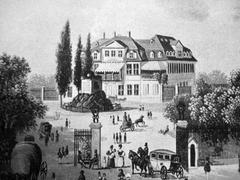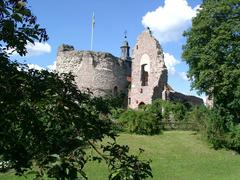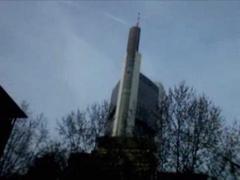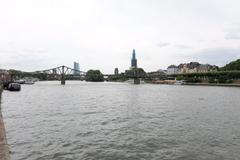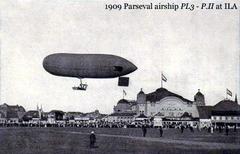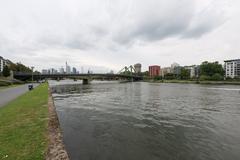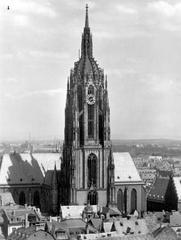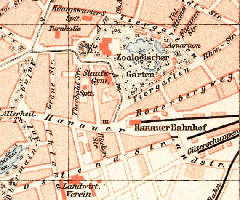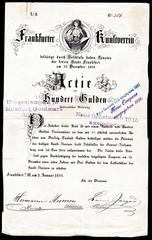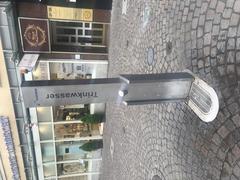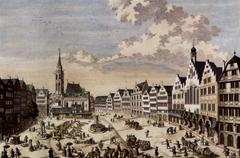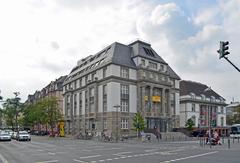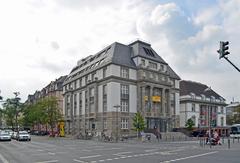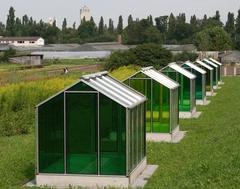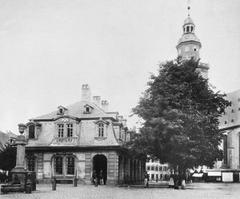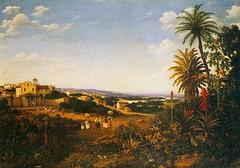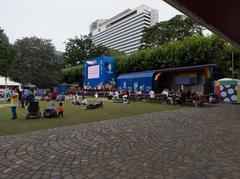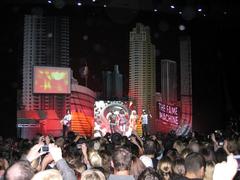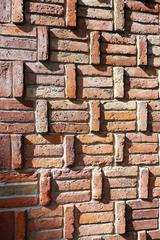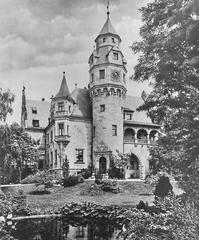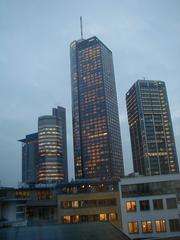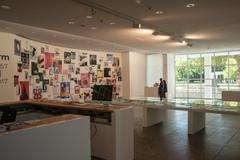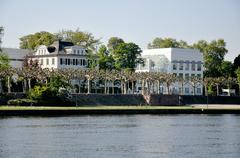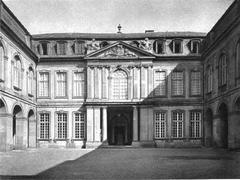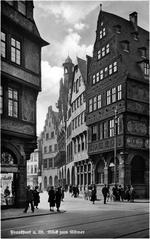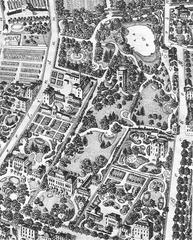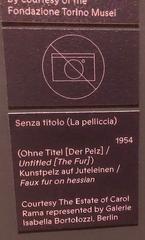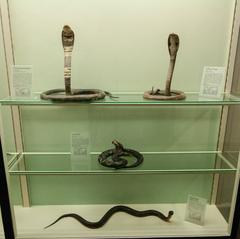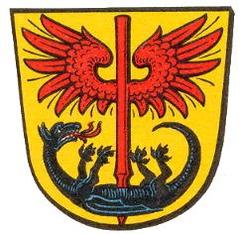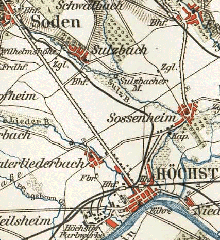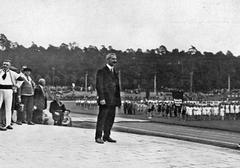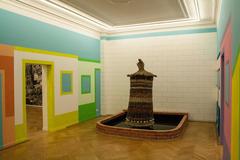
Frankfurter Judengasse Visiting Hours, Tickets, and Historical Sites Guide
Date: 03/07/2025
Introduction
The Frankfurter Judengasse (“Jews’ Alley”) stands as a testament to the endurance, culture, and resilience of Frankfurt’s Jewish community. As the first legally mandated Jewish ghetto in Europe—established in 1462 under Emperor Frederick III—the Judengasse offers an unparalleled window into centuries of Jewish life, scholarship, and adaptation under adversity. Although the original street was lost to urban renewal and wartime destruction, its archaeological remains, preserved within the Museum Judengasse, continue to educate and inspire. This guide provides a comprehensive overview of the Judengasse’s history, practical visiting information, accessibility, and tips for exploring related Jewish heritage sites in Frankfurt.
For more information, please refer to the Museum Judengasse official website, Jewish Museum Frankfurt, and Wikipedia.
Table of Contents
- Introduction
- Historical Overview
- Visiting the Judengasse Today
- Frequently Asked Questions (FAQ)
- Conclusion
- Related Articles
- References
Historical Overview
Origins and Establishment
The Frankfurter Judengasse was established in 1462, following a decree by Emperor Frederick III that required the Jewish population to relocate to a designated ghetto along the old Staufer city wall (ourfrankfurtgermanymission.blog). This move marked the beginning of Europe’s first legally sanctioned Jewish quarter, initially housing about 15 families (approximately 110 people). Strict regulations, known as “Der Juden Stättigkeit,” dictated living conditions, imposed curfews, restricted economic activities, and enforced a nightly lockdown by closing the ghetto gates (kulturothek-frankfurt.com).
Growth and Urban Structure
By the 16th century, the Judengasse’s population had soared to over 3,000, making it among the most densely populated districts in Europe (Wikipedia). The quarter comprised around 195 narrow, multi-story houses, with families often sharing cramped quarters. Despite these constraints, the community developed synagogues, schools, ritual baths, and charitable organizations, forming a vibrant urban microcosm (juedischesmuseum.de).
Cultural and Scholarly Importance
Despite legal and social limitations, the Judengasse became a focal point for Jewish learning, attracting rabbis, scholars, and students from across Europe (metahubfrankfurt.de). The community was home to prominent religious leaders and writers and was instrumental in the birth of influential Jewish families, such as the Rothschilds.
Relations with the Christian Majority
Although physically and symbolically segregated, the Judengasse’s residents maintained vital economic ties with Christian Frankfurt through professions such as moneylending, trade, and crafts. These connections were often fraught with tension and periodic outbreaks of violence, reflecting the precarious legal status of Jews in the city (frankfurt.de).
Decline and Emancipation
The 18th and 19th centuries saw both tragedy and transformation. Several fires, most notably in 1711, devastated the ghetto. From 1796, following the French occupation, the physical barriers of the Judengasse were dismantled, heralding the start of Jewish emancipation. By 1811, Jews were no longer legally confined to the ghetto. Urban renewal and World War II bombing later obliterated most remaining structures (juedischesmuseum.de).
The Börneplatz Synagogue and Holocaust Legacy
Near the Judengasse, the Börneplatz Synagogue—built in 1881/82—stood as a major center of worship until its destruction on Kristallnacht in 1938. The old Jewish cemetery, adjacent to the museum, is among Germany’s oldest. The Holocaust decimated Frankfurt’s Jewish community; thousands were deported and murdered. Today, memorials and museums ensure that this legacy is neither forgotten nor ignored.
Visiting the Judengasse Today
Museum Judengasse: Hours, Tickets, and Accessibility
Location: Battonnstraße 47, 60311 Frankfurt am Main
- Opening Hours: Tuesday to Sunday, 10:00 am – 6:00 pm; closed Mondays and selected holidays (Museum Judengasse).
- Tickets: Adults €8; reduced €5; free for children under 18 and Frankfurt residents (Jewish Museum Frankfurt).
- Combined Tickets: Joint tickets for Museum Judengasse and the main Jewish Museum Frankfurt are available.
- Accessibility: The museum is wheelchair accessible; audio guides and tactile exhibits are provided.
Museum Experience:
The museum is built around the preserved foundations of five original Judengasse houses, offering a unique, immersive experience of early modern Jewish life. Permanent and temporary exhibitions use artifacts, documents, and multimedia to explore themes of daily living, religious practice, family, and the struggle for rights (Museum Judengasse Exhibition).
Guided Tours and Educational Programs
- Guided Tours: Available in English and German, focusing on both the permanent collection and temporary exhibitions. Advance booking is recommended (Museum Judengasse Guided Tours).
- Workshops: Educational programs for school groups and families, exploring Jewish culture, history, and contemporary themes.
- Special Exhibitions: Regularly rotating exhibits address topics such as remembrance, Jewish holidays, and Holocaust history (Museum Judengasse Temporary Exhibitions).
Nearby Jewish Heritage Attractions
- Börneplatz Memorial: Commemorates victims of Nazi persecution.
- Old Jewish Cemetery: One of the oldest in Germany; accessible with a key from the museum (jguideeurope.org).
- Jewish Museum Frankfurt: Located in the Rothschild Palace; features contemporary Jewish life, the Holocaust, and cultural contributions (medium.com).
All sites are within walking distance and supported by public transport (U4/U5 Konstablerwache; Tram 11/12 Battonnstraße).
Visitor Tips
- Advance Tickets: Book online during peak seasons or for special events (WhichMuseum).
- Photography: Allowed in most public areas; restrictions may apply in some sections.
- Plan Enough Time: Allow 1–2 hours to fully experience the museum and nearby memorials.
- Language Support: Audio guides and materials are available in multiple languages.
Frequently Asked Questions (FAQ)
Q: Is the original Judengasse street still intact?
A: No. The street was demolished, but significant archaeological remains are preserved in the Museum Judengasse.
Q: Are guided tours available in English?
A: Yes, by advance appointment.
Q: Is the museum wheelchair accessible?
A: Yes, with accessible restrooms and elevators.
Q: How do I purchase tickets?
A: At the entrance or online via the museum’s official website.
Q: Can I visit the Old Jewish Cemetery?
A: Yes, request a key from the museum reception.
Q: Are children admitted free?
A: Yes, children under 18 enter free.
Conclusion
A visit to the Frankfurter Judengasse is a journey through the heart of Jewish heritage, from medieval segregation through cultural flourishing and the dark shadows of the Holocaust. The Museum Judengasse, together with the Börneplatz Memorial and adjacent cemetery, offers a comprehensive and moving exploration of Jewish life in Frankfurt. With its accessible design, educational programs, and interactive exhibits, the museum creates an inclusive space for reflection, learning, and remembrance.
Plan your visit using the details provided, and consult the Museum Judengasse website and Jewish Museum Frankfurt for the latest updates, special events, and guided tour information. Download the Audiala app for audio guides and enhanced visitor experiences, and follow museum channels for news and events.
Related Articles
References and Further Reading
- The Judengasse Museum, 2024, Museum Judengasse (https://museumjudengasse.de/en/visit/)
- Jewish Museum Frankfurt, 2024, Jewish Museum Frankfurt (https://www.juedischesmuseum.de/en/)
- Frankfurter Judengasse, 2024, Wikipedia (https://en.wikipedia.org/wiki/Frankfurter_Judengasse)
- The Judengasse Museum Excavations and History, 2024, Our Frankfurt Germany Mission Blog (https://ourfrankfurtgermanymission.blog/2024/01/27/the-judengasse-museum/)
- Jewish Heritage and Tours in Frankfurt, 2024, JGuide Europe (https://jguideeurope.org/en/region/germany/the-rhineland-and-bavaria/frankfurt-am-main/)
- Jewish Cultural Sites in Frankfurt, 2024, Frankfurt Official Tourism (https://frankfurt.de/english/museums-and-theatres/museums/museums-at-a-glance/museum-judengasse)



































